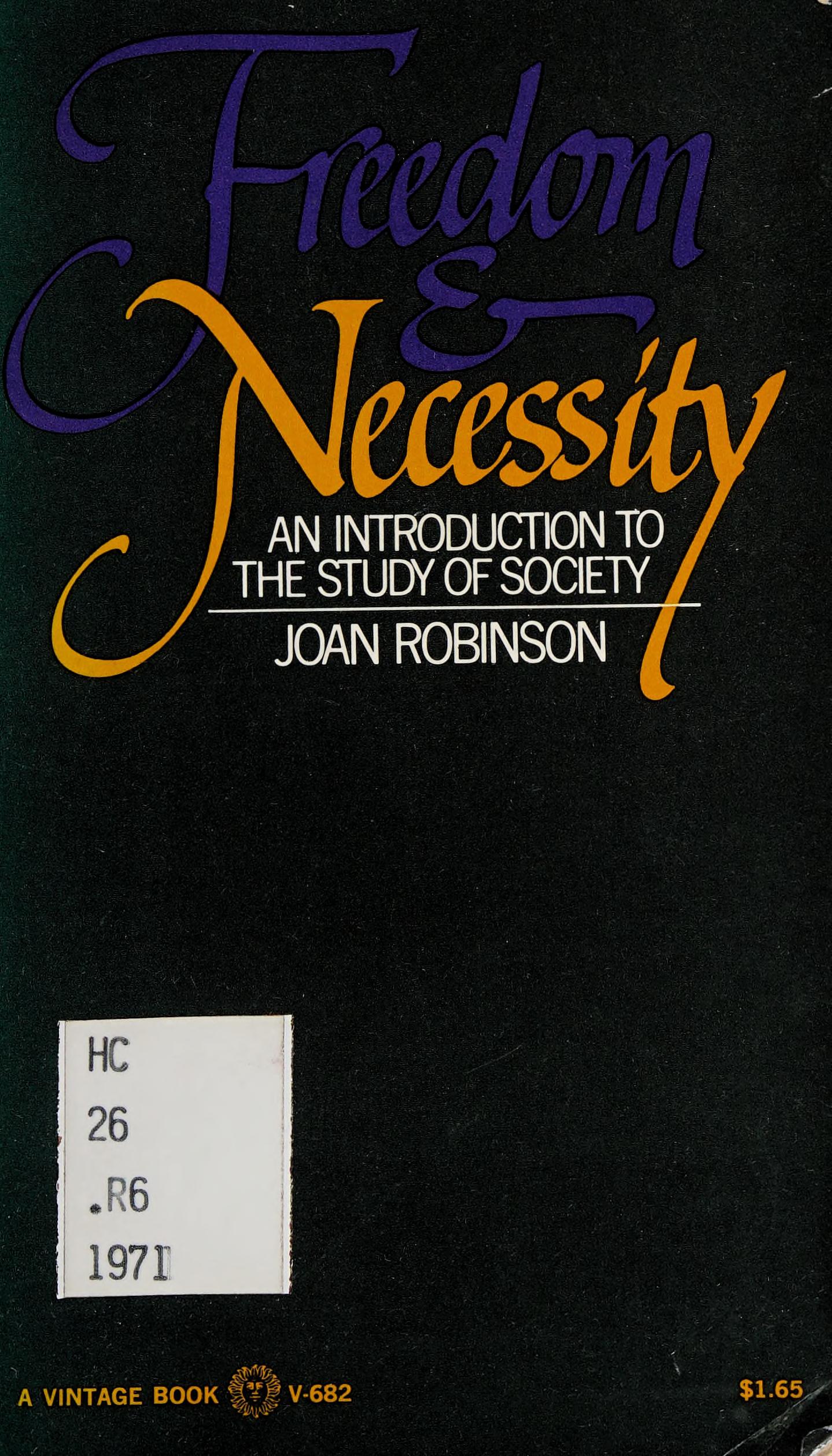Nick Johnson has some good quotes from Joan Robinson’s book Freedom & Necessity — An Introduction To The Study Of Society from 1970.
One for the current times, Chapter 9, The New Mercantilism, page 92:
The national egoism of modern capitalism is clearly seen in the sphere of international trade. The capitalist world (except in a major war) is a buyer’s market. Productive capacity exceeds demand. Exports yield profits and imports (apart from necessary raw materials) mean a loss of sales to competitors. Moreover internal investment is easier to foster, inflation easier to fend off and the foreign exchange easier to manage in a situation of a favourable balance of trade — that is, an excess of exports over imports. Thus every nation competes to achieve ‘export-led growth’, while each tries to defend itself from the exports of the others. The combination of national quasi-planning with international chaos (which the agreements on trade and finance made after the war have not succeeded in mastering) flares up from time to time in an international crisis.

credit: Internet Archive
Joan Robinson was one of the first economists to be against free trade.
In the book Aspects Of Development And Underdevelopment, 1979, Chapter 6, Dependent Industrialisation, page 102, she says:
The most pervasive and strongly held of all neoclassical doctrines is that of the universal benefits of free trade, but unfortunately the theory in terms of which it is expounded has no relevance to the question that it purports to discuss. The argument is conducted in terms of comparisons of static equilibrium positions in which each trading nation is enjoying full employment of all resources and balanced payments, the flow of exports, valued at world prices, being equal to the flow of imports. In such conditions, there is no motive for resorting to protection of home industry. Since full employment of given resources is assumed, there is no need for protection to increase home industry, and since timeless equilibrium is assumed there can never be a deficit in the balance of payments. Moreover, since all countries are treated as having the same level of development, there can be no question of ‘unequal exchange’.
Of course one of the best is the 1937 article Beggar-My-Neighbour Remedies For Unemployment.